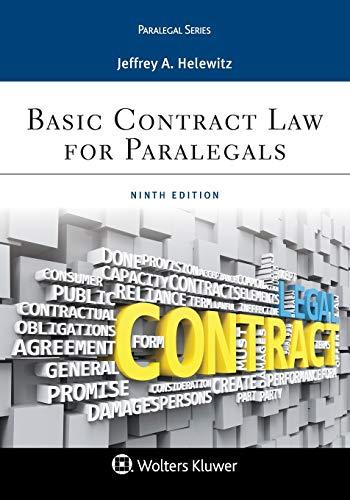The issues presented are: (1) whether the subrogation agreement between defendant fund and plaintiff Yerkovich entitled the
Question:
The issues presented are: (1) whether the subrogation agreement between defendant fund and plaintiff Yerkovich entitled the fund to reimbursement from plaintiff for medical expenses and, if so, (2) whether plaintiff’s no-fault insurer, defendant AAA, must refund plaintiff for that reimbursement. We hold that the subrogation clause did not confer upon the fund the right to be reimbursed out of plaintiff’s third-party recovery from tortfeasors. Because we hold that the fund was not entitled to reimbursement, we do not reach the second question.
Facts Plaintiff’s minor daughter was injured in an automobile accident when the driver of the vehicle in which she was riding negligently collided with another vehicle. At the time of the accident, plaintiff was a participant in the Michigan United Food and Commercial Workers Unions and Food Employers Health and Welfare Fund. The fund is a self-funded employee welfare benefit plan created and administered pursuant to the Employee Retirement Income Security Act (ERISA), 29 USC 1001 et seq. Plaintiff also had a no-fault policy issued by defendant AAA.
Plaintiff filed this action on behalf of her daughter against both defendants, seeking payment of medical expenses. The fund had initially denied coverage, claiming plaintiff had failed to execute a subrogation agreement. The fund claimed this was required by the plan’s subrogation clause. Plaintiff eventually signed the “Subrogation Agreement and Assignment” form, and the fund paid $6,832 in medical expense benefits.
The AAA also denied coverage, claiming that plaintiff’s policy contained a coordination of benefits clause that made the fund primarily responsible for medical expenses from the accident. Plaintiff also filed a negligence claim seeking noneconomic damages against the driver of the vehicle in which her daughter was riding. That case was settled for $20,000.
Plaintiff and the fund each filed motions for summary disposition in the trial court, essentially advancing the same position. The fund argued that, pursuant to the plan, plaintiff was required to reimburse the fund the $6,832 it had paid for medical expenses out of her third-party tort recovery. Plaintiff and the fund agreed that if such reimbursement were required, it would result in plaintiff paying her own medical expenses, contrary to the provisions of the no-fault act. Plaintiff and the fund argued that the AAA should be responsible for paying for the medical expenses. The AAA argued that the language of the subrogation agreement between plaintiff and the fund did not support a right to reimbursement and limited reimbursement to situations where plaintiff recovered medical expenses from a third-party suit. The trial court granted the motions for summary disposition and ordered the AAA to repay plaintiff any sums she paid to reimburse the fund. The Court of Appeals affirmed. Yerkovich v. AAA a/k/a ACIA, 231 Mich. App. 54; 585 N.W.2d 318 (1998).
The Subrogation Agreement At issue in this case is the interpretation of the plan agreement between the fund and plaintiff. Specifically, we must answer whether the fund was entitled to a refund from plaintiff for medical expenses. The fund provided plaintiff with a plan booklet that laid out the rights, benefits, and duties of the parties. Under the “General Provisions” section, the plan provided a subsection entitled “Third Party Subrogation.” The fund argues that, under this section, plaintiff was required to sign further documents ensuring its rights to subrogation, reimbursement, repayment, and assignment. It provides in pertinent part:
This Plan will take advantage of its right to subrogation if you or an eligible dependent are paid benefits by the Plan due to accidental injuries for which someone else may be liable.
Subrogation means that the Plan can recover from the person who caused the injury, or that person’s insurance company, the benefits paid on your behalf by the Plan for that injury, including but not limited to . . . tortious conduct by a third party........
Questions
1. How is “subrogation” defined?
2. What does the court say about the preexisting duty rule?
3. What is your opinion of this decision?
Step by Step Answer:






